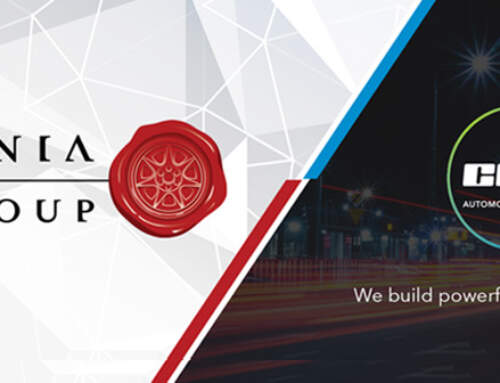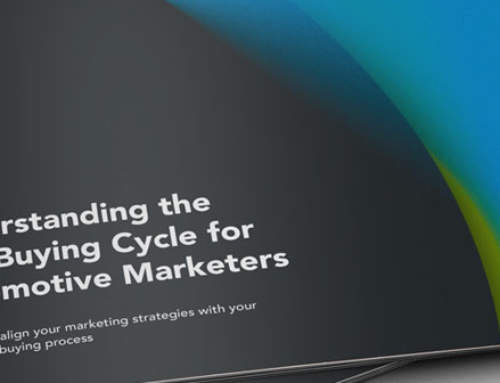Why now is the right time to rebrand your automotive company.
How the growing disruption in the automotive industry could make your firm irrelevant…
The global automotive industry has been in a state of significant disruption for a lengthy period and that doesn’t look set to change any time soon. In fact, it will likely only get worse as dramatic shifts in the global manufacturing geography and increasing product complexity force even greater change.
Brought about by a convergence of new technology; the electrification and hybridisation of drivetrains, the industry push to zero carbon, connectivity, new mobility, shared mobility, micromobility, MaaS, CAV, changing consumer demands, evolving financial models, ‘non-traditional’ suppliers entering the supply chain and the redistribution of value from hardware to software, big data and cyber security – the disruption seems endless.
Geo-political factors including USMCA, Brexit, US-China trade wars, relocation of supply chains away from China for some APAC auto makers, the relocation of traditional manufacturing centres to emerging world economies such as India, Brazil, Morocco and CEE countries, only exacerbate the situation and create additional challenges for the auto industry.
And as if all of this were not already enough, the industry is now struggling to recompose itself after the global pandemic lockdown, compounded by an anticipated cyclical industry downturn and an ageing work-force quickly approaching a critical mass in retirement age – Add all of this together and we have a perfect storm for the biggest disruption the industry has ever seen.
These challenges are felt nowhere more keenly than across the entire breadth of the automotive supply chain. If automotive OE suppliers do not adapt and respond to the evolving industry, they could easily be left behind and quickly become irrelevant.

When we accept that change is inevitable, the need to remain relevant becomes paramount
In business, irrelevance is your funeral. If you are no longer relevant you will no longer be required. The auto industry and its supply chain have a reputation for being slow to change and evolve. But change is now forced upon the industry at a far greater pace than ever seen – and the struggle to survive is very real. Many auto suppliers now find themselves facing an uncertain future. Mass disruption has created a new market landscape which many suppliers are poorly equipped to deal with. Their brands easily pigeonhole them into specific areas with little room to adapt, to sell new product lines and expand their offerings.
Even when a supplier modernises their product lines, advances their technology and keeps pace with evolving requirements of OEMs, their brand can restrain them within the market’s perception who they are, what they do and what they supply. This can be difficult to break away from, restricting business opportunities and growth.
In addition, new challenger manufacturers such as Tesla, Rivian, Nikola, Lucid Motors and many more new OEMs are entering the industry with new, ever more complex products, disruptive technology and sales models. Will they seek out the traditional suppliers, who are often seen as dinosaurs, with product ranges and brands associated with fossil fuel and ICE technology? Probably not – after all, it’s not a part of their brand DNA.
But the future doesn’t need to look so bleak. In fact, wherever there is disruption, there’s opportunity. OEMs have been forced to uncover new suppliers, turning to those who can maintain continuity and keep production lines running. They’re now collaborating more closely with their suppliers to improve transparency and manage the requirement to provide stock for the right kinds of vehicles. The political landscape has changed the geography of the supply chain, creating further opportunities for those prepared to adapt.
In the search for suppliers who fit the new requirements of the auto industry, is your brand relevant to the industry’s changing needs?
Many auto suppliers have been operating comfortably with OEMs and in their supply chains for long periods of time. Their businesses have evolved slowly and they have built their reputations based on traditional and historical supply. As technology has evolved and vehicles become more complex, so have many products, with incremental leaps in tech, engineering, manufacturing, materials, and quality. Auto OE suppliers are forced to maintain pace with the latest vehicle developments. But if suppliers are investing in their technology, engineering, new materials and so forth, do they communicate these changes to the market? Sadly, in many cases, no.
Having worked with many companies in the automotive supply chain, early in the process of rebranding, we often approach our clients’ customers for research, opinions and feedback on their brands. One surprisingly common discovery is that most of them still had clients that didn’t fully understand the complete product ranges or services they provided. More importantly, they were losing business because their existing clients were looking elsewhere assuming, often wrongly, that our client didn’t supply what they needed.
Clearly this is just down to poor communication. But the ability to adapt and evolve must reach far beyond product engineering and development. Strong communications and branding that drives relevance for your customers and prospects is essential. Taking a robust brand approach will ease your business growth, sustain profitability and add to your bottom line.

So, how should automotive companies adapt?
Rebranding or investing in brand development is a potential option for many. Altering the market’s perception of your business to create greater relevance to changing needs could be the difference between winning and losing. But how does an auto company’s brand make so much difference? To answer this, we must understand the fundamental meaning of what a brand is.
What is a brand?
Simply put, your brand is the sum-total of how your customers see, talk about, experience and perceive your firm.
Having a powerful brand and the practice of branding is fundamental to business success. Branding is the practice of creating competitive advantage for your business and creating a brand positioning that is different to and better than the competition. It is creating the perception and shaping the way YOU want the world to see your business. Brands are developed over the long-term and they make significant contributions to the company bottom line. Ultimately, branding is about creating and maintaining relevance.
Even though brands are intangible assets they are still critical to business success. More than just a logo or a product name, brands come alive in our minds and, more to the point, in the minds of our customers, our employees, investors, the media and anyone else who comes in to contact with them.
Your brand is the way your company is seen and perceived. This perception of your brand shapes belief and customer behaviour. How your customers perceive your brand, therefore, determines how they engage with your brand. So, if the practice of branding is about shaping the view of your business, the real power of branding lies in one significant principal aspect of human psychology… perceptions can be shaped. And, because perceptions can be shaped, good branding effectively dictates customer reality and, in turn, influences engagement and purchasing behaviour.
How we shape the outside world’s view of our brand, their feelings towards it and their emotional connections is the practice of branding.
“Business leaders rely on brands, as well they should. A recent study demonstrated that intangible assets now contribute 84% of the market value of S&P 500 businesses and on average, the brand contributes 25% of that”. *
The concept of the ‘brand’ still permeates boardrooms across the globe. 83% of business leaders believe that brands continually deliver to the bottom line. *
* Source: The Board-Brand Rift Report, by the Financial Times and the IPA
Is it time to rebrand your automotive company?
Now, with a clear understanding of what a brand is, examine your company’s brand. What do you see and what does it say about your business? More importantly, what do your customers see, and, do you really understand their perception of your brand? After all, your brand is not what you think it is – it’s what your customers think it is. Does it truly reflect your business? Is it relevant to the automotive industry of today? Will it remain relevant in the years to come?
If you have ever considered a rebrand, customer and market research is a good starting point. Even if you’re unsure about rebranding, it’s still a useful exercise to conduct – you may learn something valuable. Try to understand what the external perception of your brand is. Does that perception align with your aspirations for your brand? If you don’t like what you discover or it is out of alignment, it’s probably time to do something about it.
There are many signs and factors that contribute towards the need to rebrand your automotive business. If you suffer from more than one of the following points, it is time to consider rebranding.
- Are you regularly losing out on new market opportunities or opportunities to pitch for new contracts? Are you missing out on opportunities with existing customers?
- Have your products and services evolved or expanded beyond the realms of the original brand?
- Do the company name, products and services still reflect the company vision?
- Has a merger or acquisition changed the business focus, so that the brand no longer fits the entire business operations?
- Has the business model changed or will it be forced to change to maintain relevance over the coming years?
- Has your brand suffered from negative publicity or poor public image?
- Are you struggling to attract top talent and maintain an enthusiastic work force?
- Is your brand focused on an outdated industry model?
- Is your brand saying the right messages and maintaining relevance? Is it actually saying anything at all?
- Is your brand out-dated – does it look and feel old or tired.
A poor brand experience impacts everyone that engages with your business. When you empower your business with a strong brand it encourages positive outcomes.
Why invest in your brand?
At a basic level, rebranding is the inward process of recreating the way that your organisation expresses its identity to the world. In other words, it’s about changing your customers’ perception of you. Rebranding or investing in the development of your brand allows you to:
- Attract your ideal customers and charge premium prices
- Compete at a higher level or punch above your weight and gain a larger market share
- A strong brand should resonate with your customers, inspire your employees and add competitive advantage
- Distinguish and differentiate your business in a competitive market
- Establish brand foundations for the long-term prospects of the company – ensure longevity for growth, building stakeholder and investor confidence
- Attract top talent and a higher quality workforce
- Bolster customer relationships and loyalty
- Build and protect brand equity. The upshot of all the benefits above is the ultimate competitive advantage for any company: brand equity. Growing your brand equity gives you compound returns as industry authority and marketplace valuation grows with it
There’s never been a better time than now to invest in branding
As I’ve previously stated, disruption creates opportunity for those willing to adapt. In a rapidly evolving industry, drastic actions are sometimes necessary to ensure survival. Positioning your brand to take advantage of current opportunities in the disruption is a time sensitive exercise – they won’t be around forever and your competition is hungry too. As one auto exec described it to me, “If you’ve not got a seat at the table, you’re on the menu.”
If inward reflection on your brand isn’t already on the board agenda, it should be. Timing is now good for investing in developing your brand. With the auto industry emerging from the pandemic lockdown, many companies have had the breathing space to ask ‘how do we emerge from this in a stronger position?’ Although many companies have been in survival mode, longer term consideration must be given to your brand’s longevity and future relevance.
The rebrand of an entire industry?
With the automotive industry in the midst of its greatest ever disruption, it is my hypotheses that the industry itself is in the midst of a rebrand of sorts. Moving away from ICE based propulsion systems towards a zero-carbon future and the growing shift towards electric and hybrid powertrains, today’s car industry looks very different to the one of just 10 years ago.
There’s a dichotomy that lies in the actuality of this new automotive market place. Wide spread consumer adoption and demand for EVs remains slow – in stark contrast to the new narrative coming out of the industry and its push to EVs and their progression. So, how does the actual EV market play out and align with the EV focused brand narrative?
Of course, there are differences all around the world but, industrial strategy is in-part, based around government policy and long-term planning. So, if governments are set on reducing carbon emissions by a specific date, this policy filters through to industry and forms much of the basis for long-term strategy of the auto makers and supply chain. To this end, like it or not, the continued development of EVs and new automotive technologies is a strategy fixed for the long term.
The real point however, is the industry narrative over the last 5+ years has focused on electrification and the drive towards an electric future. This narrative, coming from the OEMs, supply chain and media, is in itself, the very essence of branding – shaping the perception of the market towards an outcome we ourselves craft.
So, if the automotive industry is fully-set on changing its future through perception, where does this leave your brand? How do you fit in to this brave new world, adapt to change and remain relevant in the tsunami of disruption already hitting almost every aspect of the automotive world?
The time to invest in developing your automotive brand is now.
If you’re considering a rebrand or looking to improve your brand performance, CMB can help you take this journey and provide you with the expertise and support you need for all aspects of your automotive brand development. Contact us for a no-obligations chat about the opportunities for your brand’s future.











